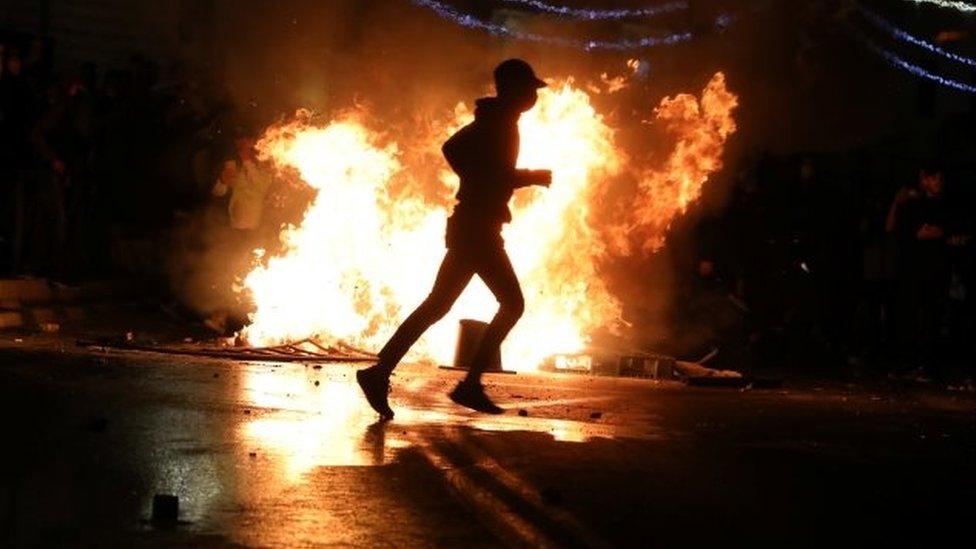Israel-Gaza: Fears of war as violence escalates
- Published
Israeli Arabs clashed with police in a number of Israeli cities
The deadly exchange of fire between Palestinian militants in the Gaza Strip and the Israeli military has escalated significantly, with the UN fearing a "full-scale war".
More than 1,000 rockets have been fired by Palestinian militants, Israel says.
Israel has carried out hundreds of air strikes on Gaza, destroying three tower blocks and killing senior Hamas officials.
Since Monday at least 65 Palestinians and six people in Israel have died.
That includes 16 Palestinian children caught up in the conflict.
UN Secretary General António Guterres said he was "gravely concerned" by the ongoing violence.
In a phone call to Israeli Prime Minister Benjamin Netanyahu, US Secretary of State Anthony Blinken condemned Hamas rocket attacks but said Israel had an obligation to avoid civilian casualties.
He said he had sent Deputy Assistant Secretary of State Hady Amr to meet both sides.
The fighting erupted on Monday night after weeks of rising Israeli-Palestinian tension in East Jerusalem which culminated in clashes at a holy site revered by Muslims and Jews.
Violent unrest in towns in Israel with mixed Jewish and Arab populations has led to hundreds of arrests. Lod near Tel Aviv is under a state of emergency.
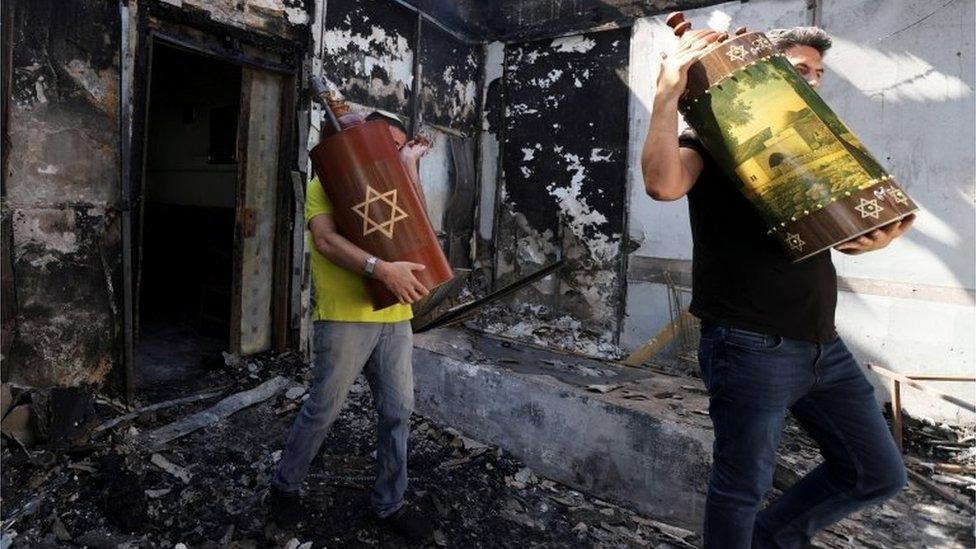
Torah scrolls are removed from a damaged synagogue in Lod
Mr Netanyahu said the government would use all its strength to protect Israel from enemies on the outside and rioters on the inside.
But the Palestinian Authority condemned Israel's "military aggression" in a tweet, external, saying it was "traumatizing an already beleaguered population of 2 million people".
What is happening in Gaza?
Militants in Gaza began firing rockets into Israel on Monday night, and Israel responded by hitting targets in the territory.
On Wednesday Israel said it had killed senior officials of the Hamas group in Gaza, and was also targeting missile launching sites.
"This was only the beginning. We will inflict blows on them that they have never dreamed of," said the Israeli prime minister.
Hamas - which runs Gaza - confirmed the death of its commander in Gaza City and other "warriors".
"Thousands of leaders and soldiers will follow in their footsteps," Hamas said in a statement reported by Reuters news agency.
But the Russian foreign ministry in a statement quoted a Hamas spokesman as saying the movement was ready for a ceasefire if Israel stopped "violent acts" in East Jerusalem and "illegal measures in respect of its native Arab residents".
The Hamas-run health ministry in Gaza says that more than 360 people have been injured there since the conflict began, as well as the 65 who have died.
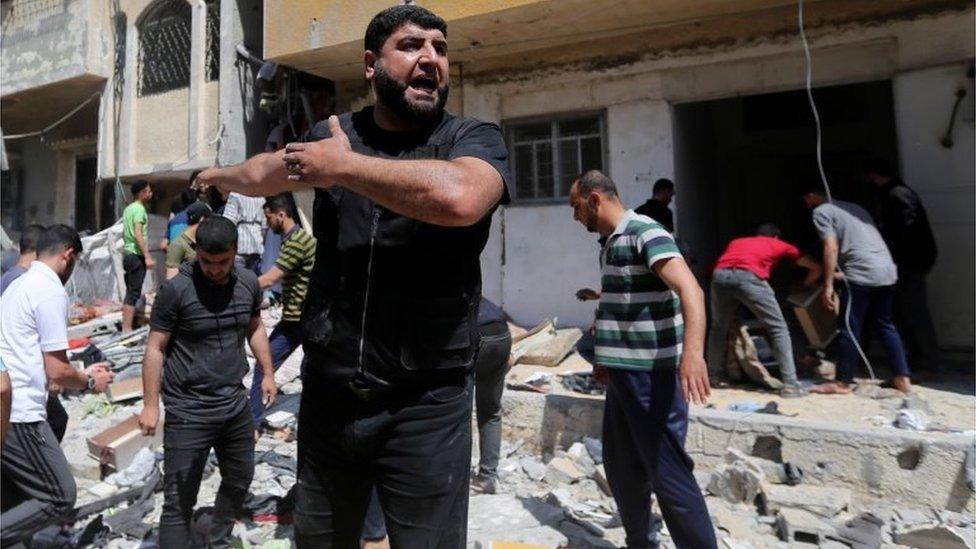
This building in the southern Gaza Strip was hit by an Israeli air strike
The Israel Defence Forces (IDF) said on Wednesday that their strikes on Gaza were the largest since the conflict in 2014.
On Wednesday a third high-rise building in Gaza was destroyed.
Allow X content?
This article contains content provided by X. We ask for your permission before anything is loaded, as they may be using cookies and other technologies. You may want to read X’s cookie policy, external and privacy policy, external before accepting. To view this content choose ‘accept and continue’.

Hamas said it was incensed by "the enemy's targeting of residential towers".
Residents had been warned to evacuate the buildings before fighter jets attacked; however health officials said there were still civilian deaths.
Five members of one family were killed in an air strike on Tuesday, including two young brothers, according to AFP news agency.
An 11-year-old resident of Gaza, Yasmine, told Save the Children Tuesday had been the worst night of her life.
"I had pain in my stomach from the fear and my parents were trying to comfort me and tell me the bombing was far away but I could feel that it was close," she told the charity. "Tomorrow is Eid and we won't be celebrating because of this conflict."
What is happening in Israel?
Millions of Israelis were heading to bomb shelters on Wednesday evening, according to the IDF, external, as sirens warning of rockets sounded across the country.
On Wednesday morning an Israeli soldier was killed by an anti-tank missile fired from Gaza into Israel, authorities said.
There were conflicting reports on the fate of a six-year-old boy hit in a rocket attack on the town of Sderot, with some saying he had died in the attack.
Two people, a man and his teenage daughter, were killed in Lod when a rocket hit their car. They were both Israeli Arabs.
Israeli police reported what they called violent riots in dozens of areas of the country overnight, with 270 people arrested.
Synagogues and businesses in Lod were set on fire.
Mr Netanyahu described the riots as "unbearable" and said they reminded the Jewish people of their past.
Israeli police said that Lod would be placed under curfew from 20:00 local time on Wednesday until 04:00 on Thursday to preserve the safety and property of residents.
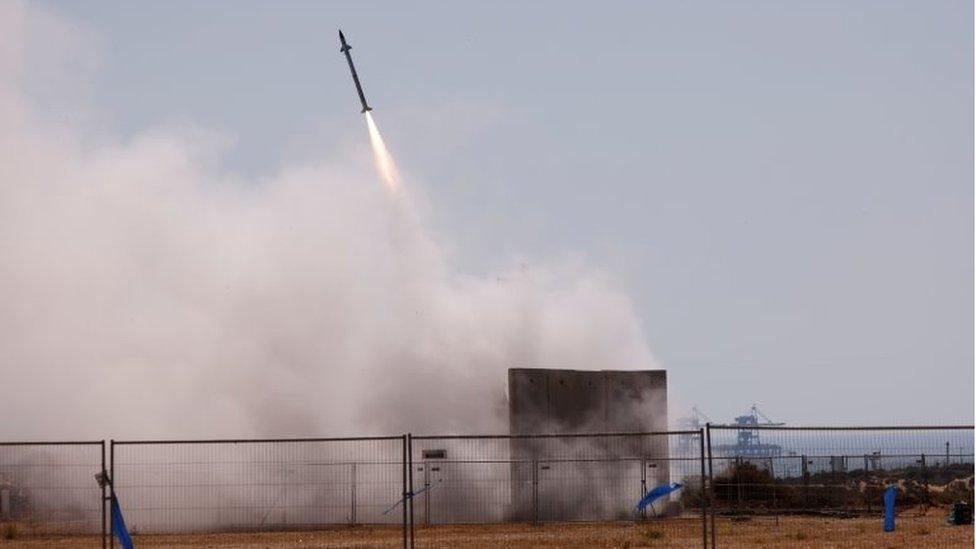
Israel's Iron Dome anti-missile system, seen here in Ashkelon, attempts to intercept rockets
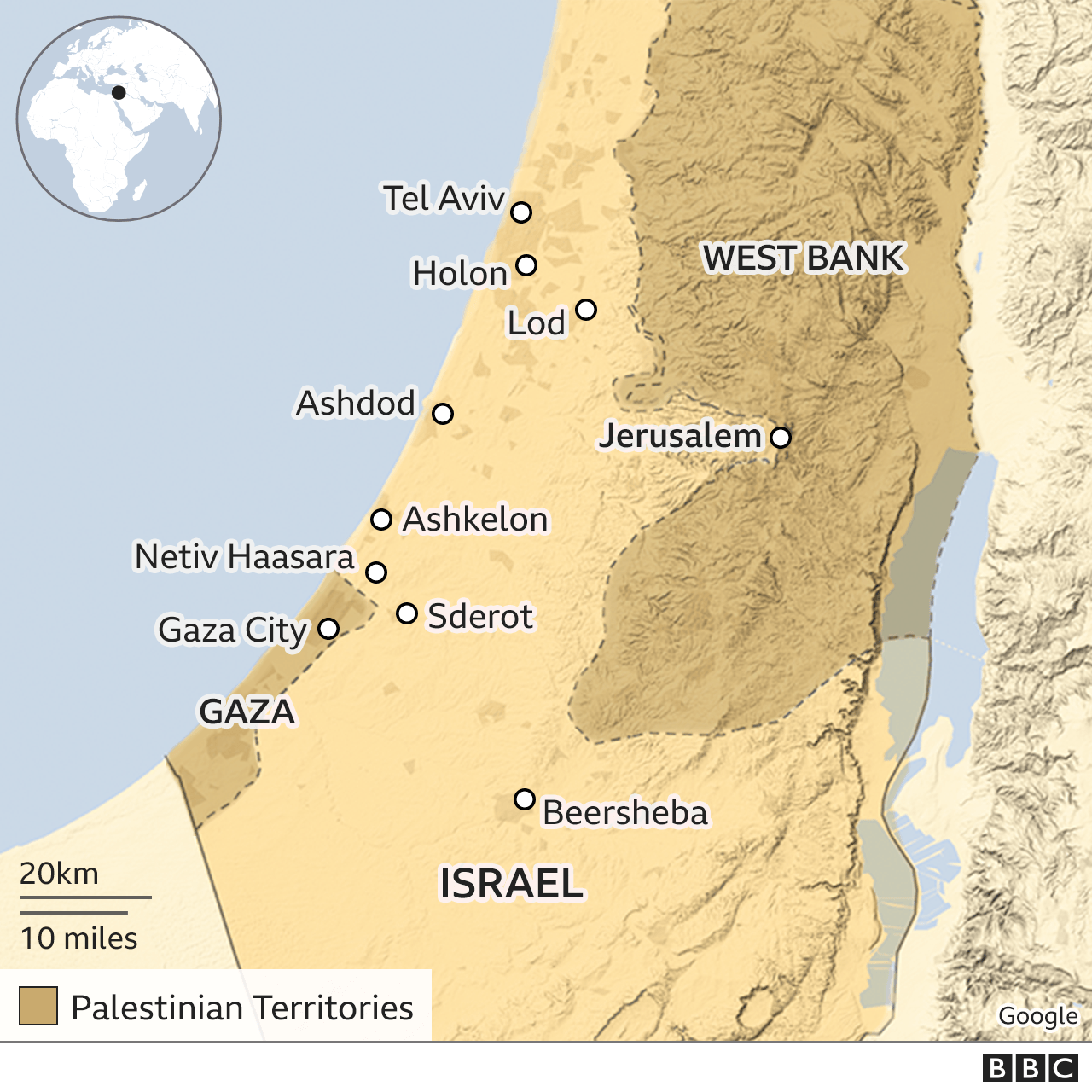

What has caused the violence?
The fighting between Israel and Hamas was triggered by days of escalating clashes between Palestinians and Israeli police at a holy hilltop compound in East Jerusalem.
The site is revered by both Muslims, who call it the Haram al-Sharif (Noble Sanctuary), and Jews, for whom it is known as the Temple Mount. Hamas demanded Israel remove police from there and the nearby predominantly Arab district of Sheikh Jarrah, where Palestinian families face eviction by Jewish settlers. Hamas launched rockets when its ultimatum went unheeded.
Palestinian anger had already been stoked by weeks of rising tension in East Jerusalem, inflamed by a series of confrontations with police since the start of the Islamic holy month of Ramadan in mid-April.
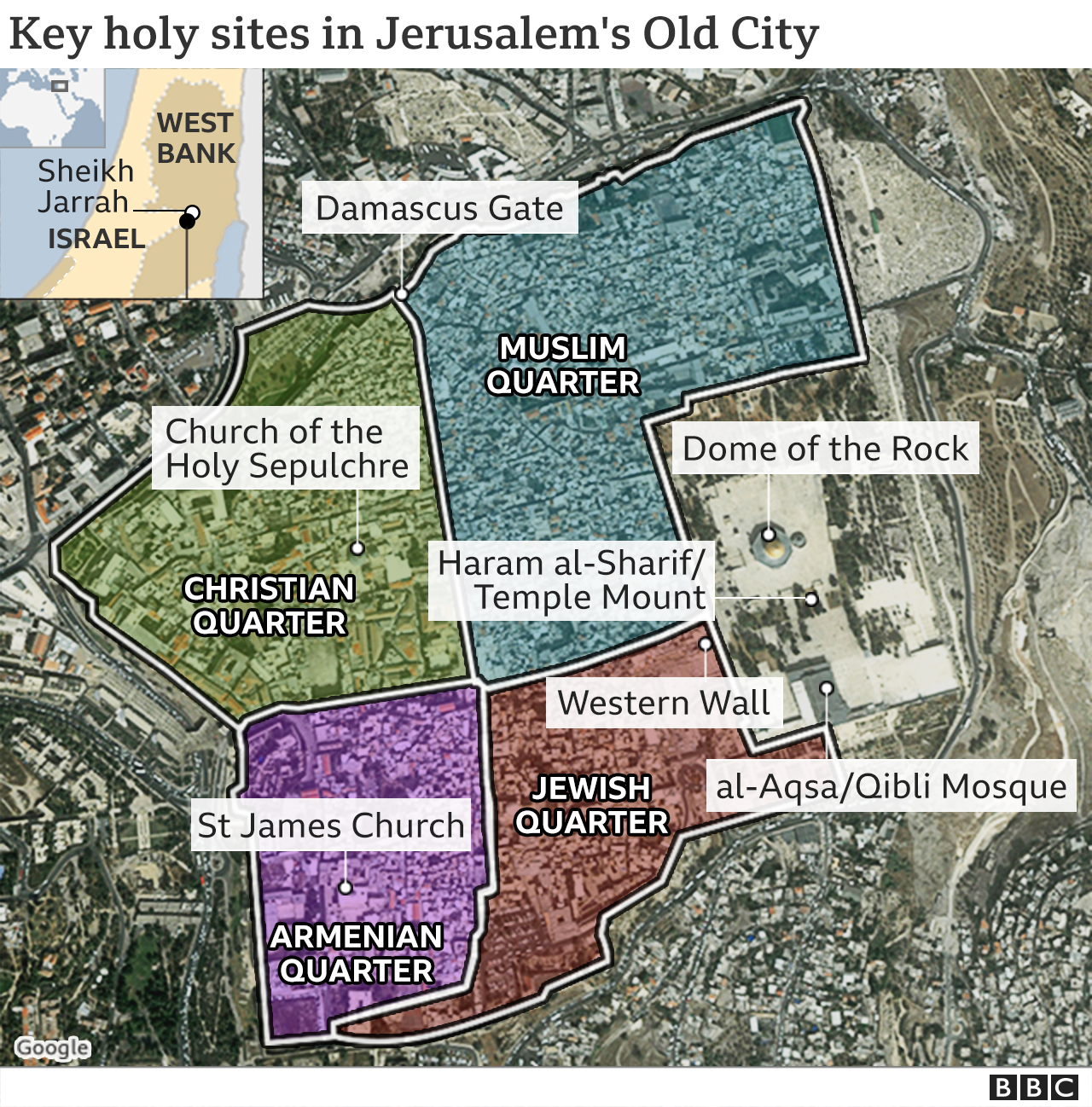

It was further fuelled by the threatened eviction of Palestinian families from their homes in East Jerusalem by Jewish settlers and Israel's annual celebration of its capture of East Jerusalem in the 1967 Middle East war, known as Jerusalem Day.
The fate of the city, with its deep religious and national significance to both sides, lies at the heart of the decades-old Israel-Palestinian conflict. Israel in effect annexed East Jerusalem in 1980 and considers the entire city its capital, though this is not recognised by the vast majority of other countries.
Palestinians claim the eastern half of Jerusalem as the capital of a hoped-for state of their own.

Are you in Israel or Gaza and affected by these events? Please share your story by emailing haveyoursay@bbc.co.uk, external.
Please include a contact number if you are willing to speak to a BBC journalist. You can also get in touch in the following ways:
WhatsApp: +44 7756 165803
Tweet: @BBC_HaveYourSay, external
Please read our terms & conditions and privacy policy
If you are reading this page and can't see the form you will need to visit the mobile version of the BBC website to submit your question or comment or you can email us at HaveYourSay@bbc.co.uk, external. Please include your name, age and location with any submission.
- Published12 May 2021
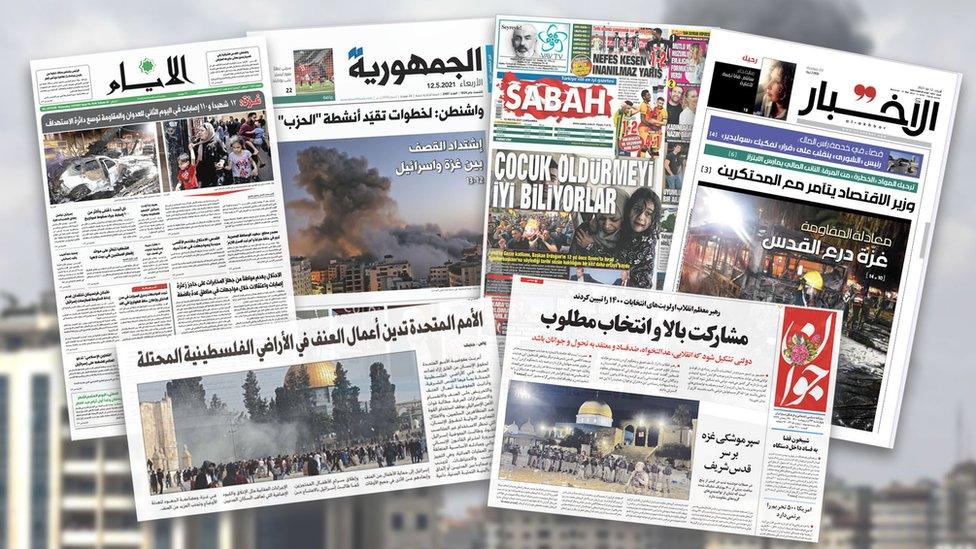
- Published1 July 2021
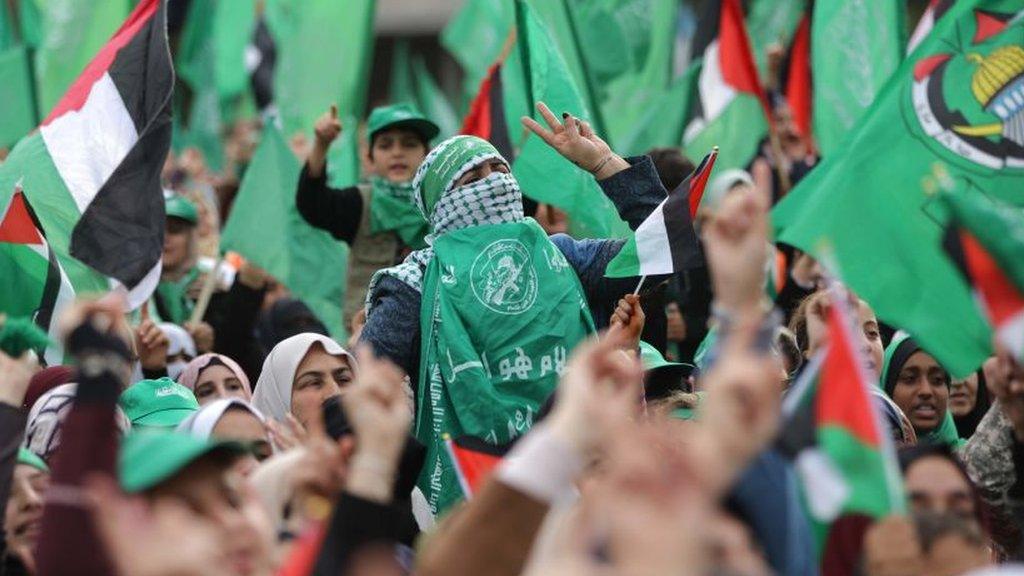
- Published11 May 2021
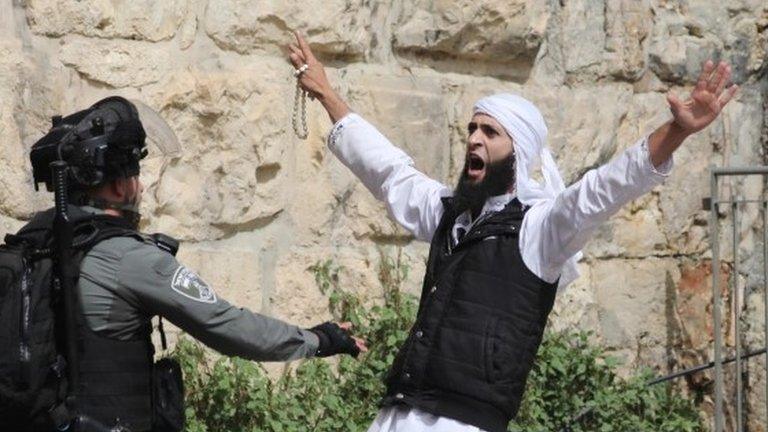
- Published9 May 2021
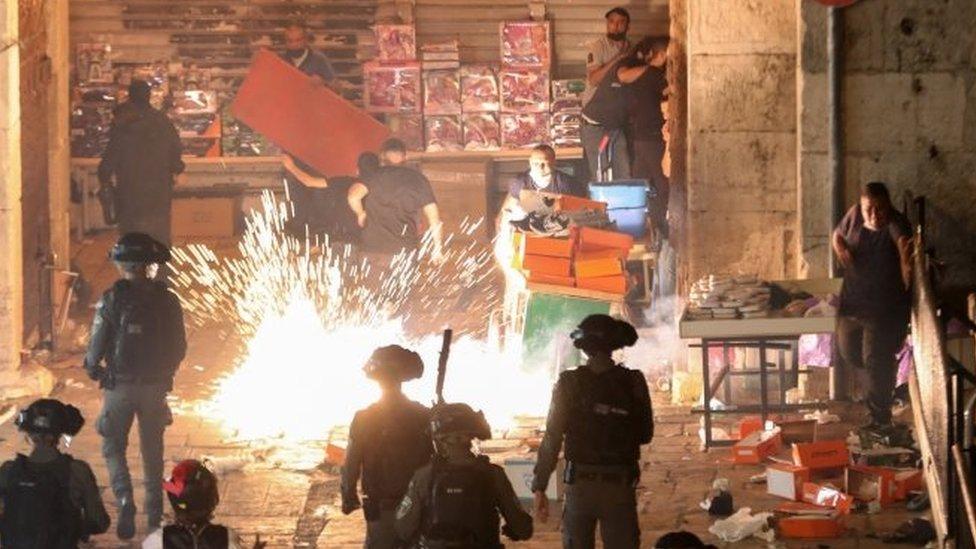
- Published8 May 2021
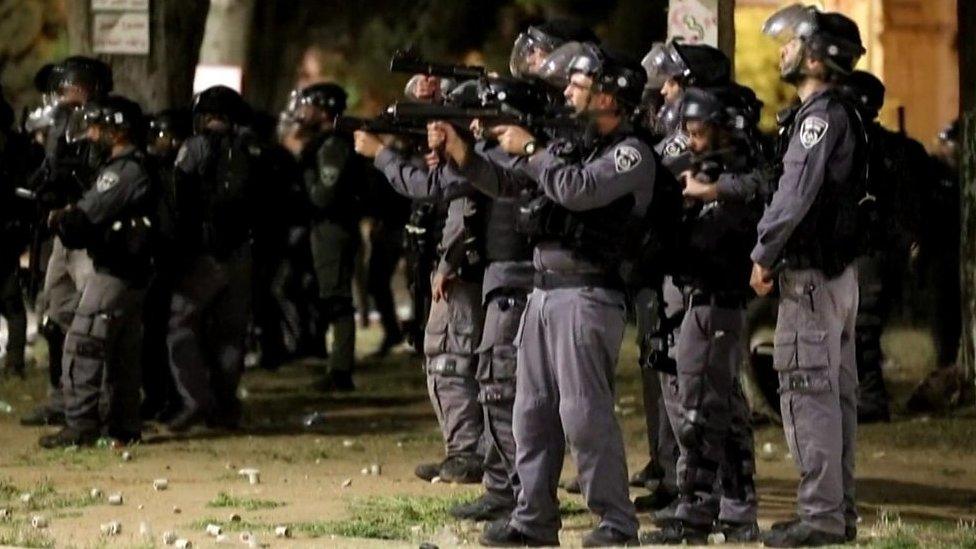
- Published23 April 2021
